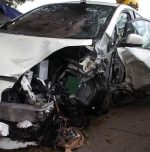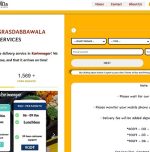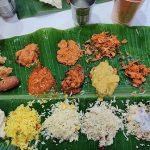Mobile immunisation check

The world’s largest mobile service reminds parents that they have to immunize their children. This novel technique, set up by The Indian Academy of Pediatrics (IAP), in partnership with Vodafone, is harnessing the use of technology for social service. Called ImmunizeIndia, it was started by Dr. Ranjan Pejaver and Janani Barath.
Such vaccination reminder services in the rest of the world have helped to improve timely vaccinations by 20%. With more than 800 million mobile connections, every household in India now has a phone that supports SMS.
ImmunizeIndia’s mission is to prevent 500,000 child deaths and disabilities by the end of 2018. According to the Global Immunization Vision and Strategy (GIVS) 2006-2015, World Health Organization, more than 2 million children under the age of five are dying and about 1 million might suffer disability forever in India.
Vaccinations can stave off death or disability due to respiratory infections, diarrhoea, measles, malaria and malnutrition. They all call for timely and periodic vaccinations. However, due to lack of awareness and proper medical facilities, many parents tend to forget or neglect it.
This service is free for registered mobile numbers. All parents in the country can register for it by sending a message to a short code, 566778, from a mobile network anywhere in the country. The format of the message is: Immunize <Space> <Baby’s pet name> <space> <Baby’s date of birth>.
Immediately, the message will be confirmed, and then periodic reminders about Guddu’s immunization service will follow, along with reminders about his schedule for 12 years.
Three reminders are sent at two-day intervals for every vaccination according to the schedule. For example: “Guddu is due for a vaccination this week, please do not forget to visit your doctor.”
Just two months after it was launched, 20,000 children had registered, which was more than the target. IAP is also engaging with community workers like doctors, nurses, schoolteachers, aanganwadi workers and priests. Multilingual communications campaigns and posters at clinics, hospitals, schools and other public places will improve the programme.
You may also like
Recent Posts
- Dhruv64: India unveils its first indigenous 64-bit microprocessorDhruv64 is a 1.0 GHz, 64-bit dual-core processor built on the RISC-V instruction set architecture.
- Skyward partnership: India and France elevate defence tiesNarendra Modi and Emmanuel Macron jointly inaugurated a new helicopter assembly line in India yesterday.
- Feeding hope: How this man is transforming lives in KarimnagarDayanand and a team of fellow retirees now serve breakfast, lunch, dinner, and tiffin to 300–500 people each day.
- Dhruv64: India unveils its first indigenous 64-bit microprocessor
What’s new at WeRIndia.com
News from 700+ sources
-
T20 WC: Afridi Out, Salman In As Pakistan Opt To Bat Against Namibia In Must Win Group A Game
-
Nithya Menen launches production house Keyuri, marking new phase in film career
-
Siddhu Jonnalagadda to play detective in Swaroop RSJ’s Rambo: Report
-
Allu Arjun and Lokesh Kanagaraj’s selfie celebrating AA23 theme fuels buzz
-
Maharashtra showcases AI-driven agri transformation at India AI Impact Summit 2026
-
Anurag Kashyap opens up on rehab, heart attack after Netflix shelved Maximum City
-
WeRIndia – A News Aggregator
Visit werindia.com for all types of National | Business | World | Politics | Entertainment | Health related news and much more..










Leave a Reply